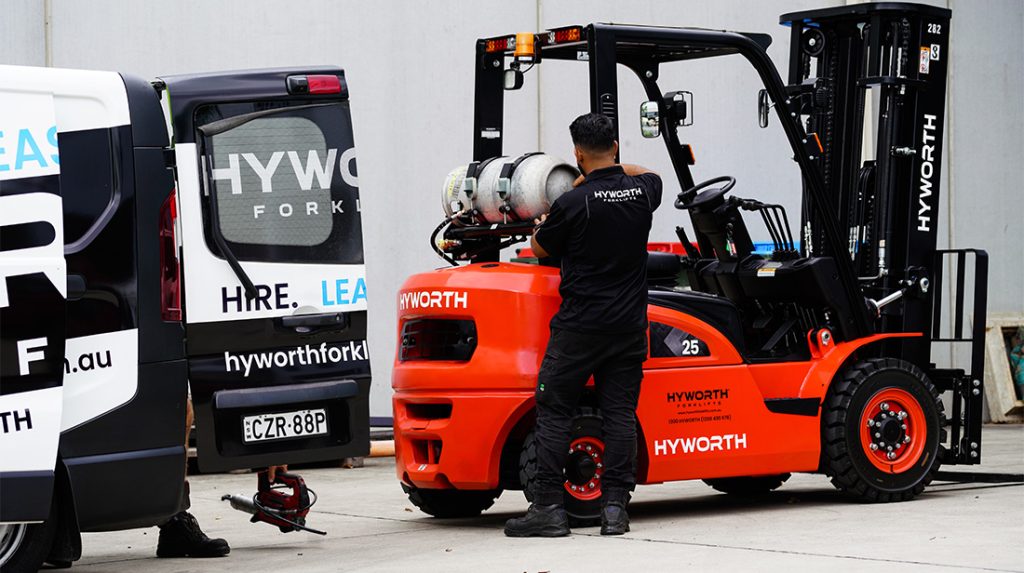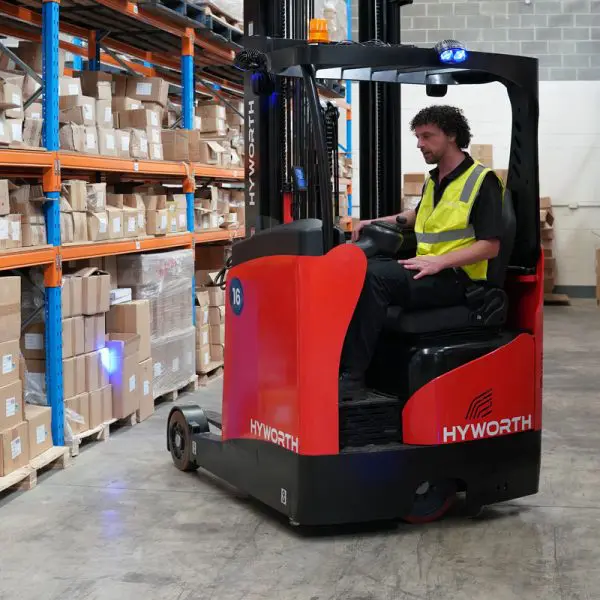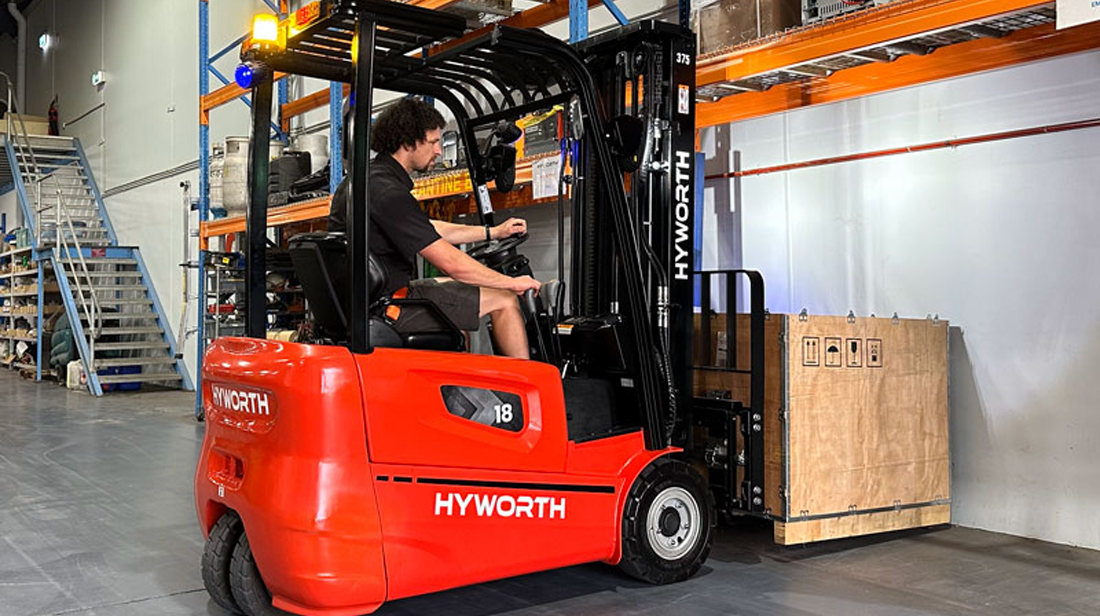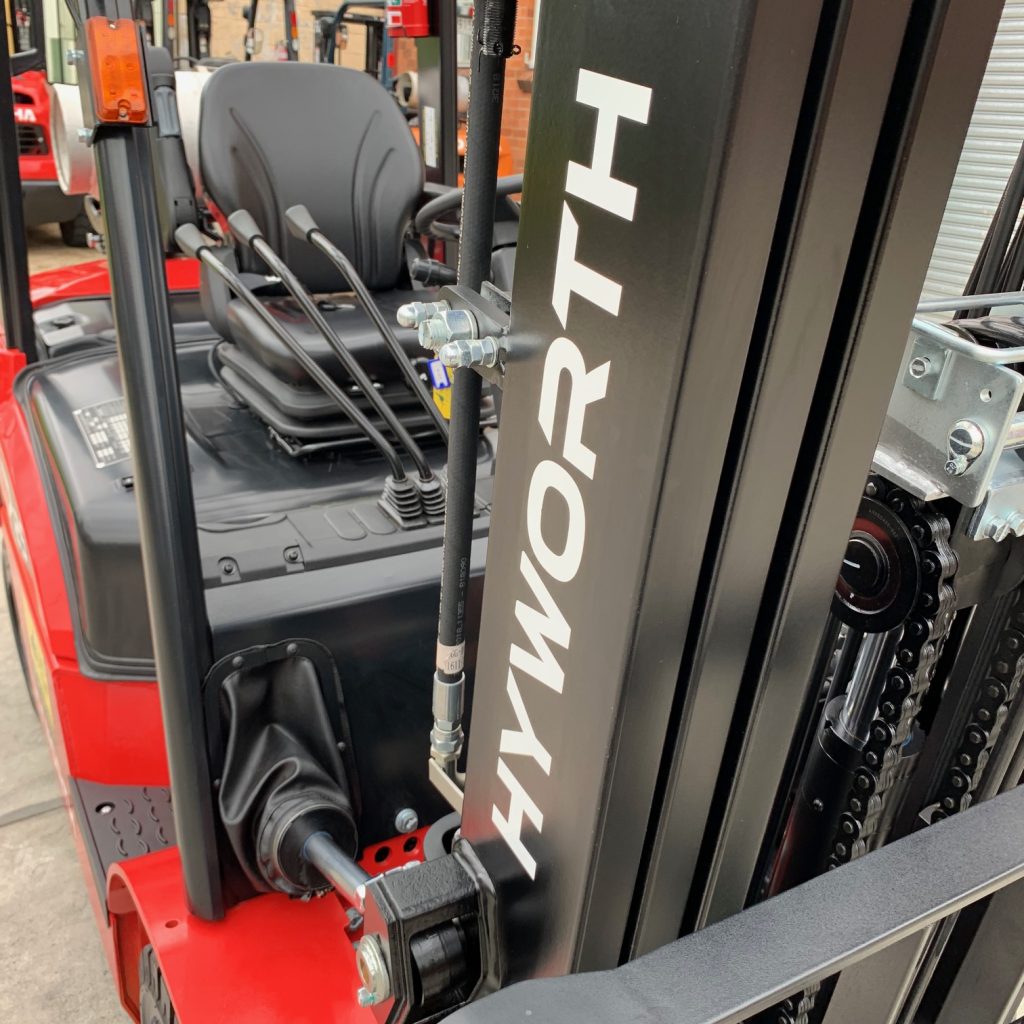
Buying a used forklift is a significant investment, whether you’re upgrading your equipment or purchasing your first machine. To make the most of your purchase, it’s essential to ask the right questions. These questions not only guide you in choosing a forklift that suits your needs but also help you avoid costly mistakes that could impact your operations.
Each business is unique, and finding the perfect forklift depends on understanding your specific requirements. From the type of environment it will operate to its lifting capacity, there’s a lot to consider. Asking the right questions upfront ensures you get a reliable, efficient, and safe forklift for your operations.
Key questions to consider before buying a used forklift
When buying a used forklift, evaluating several key factors is important to ensure it’s the right fit for your business. Every forklift serves a unique purpose, and answering a few crucial questions will help you determine whether a specific model meets your operational needs and budget.
From where the forklift will be used to its lifting capacity and aisle width requirements, these considerations ensure that you invest in practical and efficient equipment.
Where will you be using the forklift?
One of the first questions to ask when buying a used forklift is where it will be used. The environment plays a major role in choosing the right type of forklift and its tyres. For indoor use, forklifts with cushion tyres are often the best choice. These tyres are designed for smooth, flat surfaces like concrete floors, making them ideal for warehouses and factories.
On the other hand, if the forklift will be used outdoors, pneumatic tyres are more suitable. They provide better traction and durability on uneven surfaces, gravel, or asphalt. Some forklifts are even designed for both indoor and outdoor use, offering greater versatility.
Hyworth Forklifts’ Perfect Match Forklift Tool makes it easy to identify the right model for your environment. By answering simple questions about where you plan to use the forklift, the tool provides tailored recommendations, ensuring you make the right choice every time.
What weight will you be lifting?
When buying a used forklift, understanding the weight capacity you need is crucial. Every forklift has a maximum lifting capacity, and exceeding this limit can compromise safety and reduce efficiency. That’s why it’s essential to choose a forklift that can handle the heaviest load you’ll need to move.
Start by assessing your typical operations. What is the maximum weight of the loads you handle? Consider the heaviest pallets or materials you’ll be lifting regularly. It’s always a good idea to choose a forklift with a slightly higher capacity than your usual requirements. This ensures it can handle occasional heavier loads without strain.
How high will you be lifting?
Lifting height is another key factor to consider. Knowing how high you need to lift materials ensures you select a forklift with the right mast type to handle your specific tasks efficiently and safely.
Start by measuring the maximum height required for your operations. For instance, if you’re working in a warehouse with tall shelving, you may need a forklift with a triple-stage mast capable of reaching those heights. On the other hand, if your work involves loading trucks or stacking pallets, a standard mast may be sufficient.
Overhead clearance is equally important. Consider any low ceilings, doorways, or storage areas where the forklift will operate. Forklifts with container masts are designed for spaces with limited clearance, ensuring smooth operation without any risk of damage. By understanding your lifting height needs and overhead restrictions, you’ll make a more informed choice when buying a used forklift.
What is your aisle width?
Aisle width is a crucial consideration, as it directly impacts the type of forklift you’ll need. Narrow aisles, common in warehouses, require forklifts with a compact design and excellent manoeuvrability. Choosing the wrong forklift for your aisle width can lead to inefficiency and even safety risks during operations.
Start by measuring the narrowest aisle in your workspace. If the width is less than 2.7 metres, you may need a narrow aisle forklift, such as a reach truck or a very narrow aisle (VNA) model. These forklifts are designed to operate in tighter spaces without compromising performance.

For wider aisles, a standard counterbalance forklift may be more suitable.
Accurate measurements are key to ensuring smooth operations. A forklift that fits your aisle width will not only save time but also prevent unnecessary damage to inventory or racking. Always account for turning radius and load size when making your decision.

Do you require specific forklift features?
When buying a used forklift, consider whether you need specific features to match your operational requirements. For instance, if you use pallet racking systems, ensure the forklift is compatible with the height and design of your racks. Similarly, a compact turning radius is crucial for navigating tight spaces, especially in busy warehouses.
You might also need custom attachments, such as clamps or rotators, to handle unique materials. Asking about these features during the buying process helps you find a forklift tailored to your tasks. Choosing the right features ensures efficiency and maximises your investment.
Financial and usage considerations
What is your budget for buying or hiring?
Deciding between purchasing or hiring is an important financial consideration. Buying is a long-term investment that can save money over time, especially if the forklift will be used regularly. However, for short-term or occasional use, hiring may be a more cost-effective option.
How often will the forklift be used?
Usage frequency is a key factor when buying a used forklift. If your forklift will be used daily for long hours, a newer model might be more reliable and cost-effective in the long run. For occasional or light use, however, a well-maintained used forklift can provide excellent value without the higher upfront cost.
At Hyworth Forklifts, we understand that every business has unique needs. Our team is here to help you assess your operational requirements and find the best solution, whether it’s buying or hiring a forklift. With flexible finance options and expert guidance, we ensure you choose a forklift that fits your budget while balancing performance, reliability, and usage frequency.
Evaluating the Forklift’s Condition
Evaluating its condition is essential to ensure reliability and avoid unexpected costs. A well-maintained forklift will perform safely and efficiently, making it a valuable investment for your business. Here are two key areas to focus on:
What is the forklift’s maintenance history?
The maintenance history of a forklift provides valuable insight into its reliability. Ask for detailed service records, including past repairs, routine maintenance, and part replacements. A forklift with a consistent maintenance history is likely to perform better and last longer. Look for signs of regular care, such as timely oil changes, brake inspections, and battery servicing. If the records are unclear or unavailable, it may be a red flag.
Are there signs of wear or damage?
Inspect the forklift thoroughly for visible signs of wear or damage. Check the tyres for excessive wear or cracks, as this can affect safety and performance. Examine the forks for bends or cracks, and ensure the mast operates smoothly without unusual noises. Don’t forget to inspect hydraulic components for leaks or rust. Spotting these issues early helps you avoid costly repairs down the line.

Choosing a trusted dealer
Selecting a reputable dealer is just as important as choosing the right equipment. At Hyworth Forklifts, we take pride in our reputation for providing high-quality forklifts and expert guidance. With years of industry experience, we ensure our customers receive reliable equipment that meets their unique needs.
To make the process even easier, we offer our Perfect Match Forklift Tool. This interactive tool simplifies decision-making by asking key questions about your operations, such as “What height are you lifting to?” or “What is your aisle width?” Based on your answers, the tool recommends forklifts tailored to your specific requirements. Whether you’re working in a tight warehouse or on a construction site, this tool ensures you find the perfect match.
By choosing Hyworth Forklifts, you gain access to trusted advice, quality equipment, and innovative tools that make your forklift purchase seamless and stress-free.
Conclusion
Asking the right questions is key to making a confident and informed decision when buying a used forklift. By considering factors like environment, weight capacity, lifting height, and aisle width, you can ensure the forklift you choose meets your operational needs.
At Hyworth Forklifts, we’re here to make the process easier. Our Perfect Match Forklift Tool is designed to provide tailored recommendations, while our specialist team is always ready to offer expert advice. Whether you prefer to use our tool or speak with us directly, we’re committed to helping you find the perfect forklift for your business.